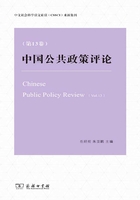
西方福利国家理论——研究传统及新取向注3
【摘要】 工业主义逻辑、权力资源模型以及国家中心主义进路,奠定了西方学界研究福利国家兴起、演变问题的主要理论传统。工业主义逻辑强调了经济发展对福利国家成长的约束性作用,权力资源模型关注到了阶级、工会和左翼政党等政治因素在其中扮演的关键性角色,国家中心主义进路分析了国家制度结构、政策遗产和制度变化时序的历史性影响。随着全球化进程加速以及经济形态的演化更新,以往更多聚焦西方国家、国内阶级政治议题的理论进路,逐渐转向一种融合视角,涵盖经济全球化、后工业主义和女权主义等内容。非西方世界的福利国家发展动态也更多地受到西方学界的关注,在一定程度上打破了福利国家研究中的西方中心主义。在21世纪初期的全球金融危机、欧债危机和难民危机背景下,考虑到现有理论在分析福利制度的国别差异、福利制度改革的政治约束、经济社会新挑战等方面的局限性,福利国家理论研究仍存在较大的深化空间,未来需要切实加强理论对话,着力探讨后危机时代福利制度面临的新挑战,尤其是要加强跨国福利制度比较研究,深入分析福利制度改革面临的政治约束及其应对方案。
【关键词】 福利国家 工业主义逻辑 权力资源模型 国家中心主义进路
Abstract The logic of industrialism, power resource model and polity-centered approach lay the tradition of western research of welfare state. The logic of industrialism highlights the restriction effects of economic growth on the development of welfare state, and power resource model focuses on the key roles of class, trade unions and left-wing political parties and polity-centered approach emphasizes the influences of state institutions structure, policy legacy and historical variations in state structure. Following the acceleration of globalization and the evolution of the economics, the approach oriented towards western countries, inner class politics, is turning to a comprehensive perspective, which is composed of the views of economic globalization, post industrialism and feminist critics. The image of welfare state of non-Western world has drawn more attention, breaking up the Western Centrism in the research of welfare state. Under the background of global financial crisis, European debt crisis and the refugee crisis in the new century, considering the limits of existing theory in analyzing the distinction between different countries, the constraints of welfare state reforming and the new challenges of society, the theories of welfare state still have much space to deepen in the future. We should strengthen the conversation over different theories, especially in the comparative research of multinational welfare system, and analyze the political restraints on the welfare state reformation and its solutions.
Key words Welfare State, Logic of Industrialism, Power Resource Model, Polity-centered Approach